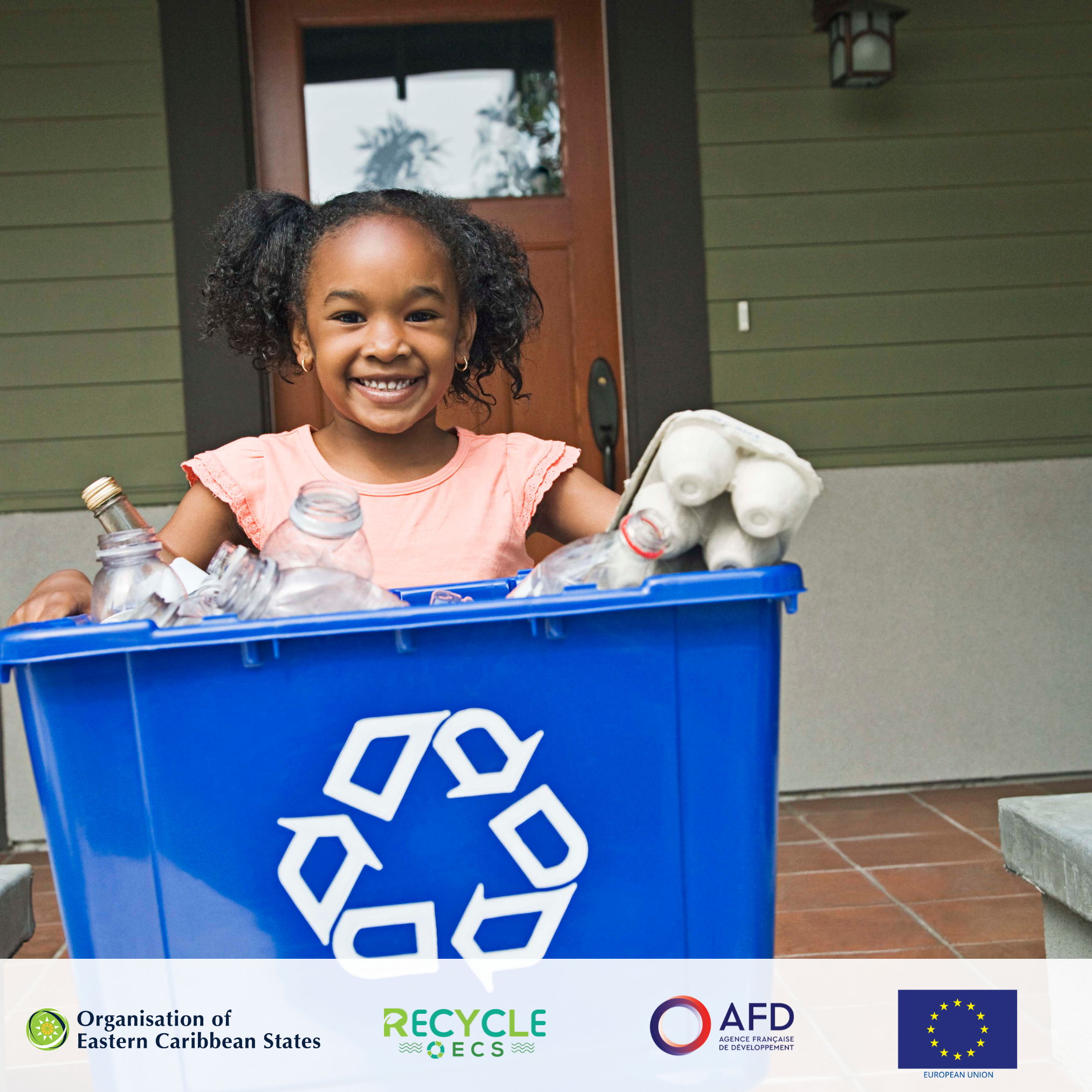Leveraging Legislation to Scale Up Recycling for Sustainability Across The OECS
OECS Press Release
The implementation of the Recycle OECS Project has identified critical policy imperatives necessary to successfully scale up recycling efforts and chart a sustainable course for Small Island Developing States (SIDS). By focusing on legislative reform, innovative financing, and strategic public-private partnerships, the project lays a foundation for addressing the region’s plastic waste challenges.
Policymakers across the OECS must consider enacting deposit-refund legislation to incentivize plastic recycling. This approach, already successful in many countries worldwide, encourages individuals to return beverage containers, ensuring cleaner collection streams. Additionally, mandating recycling targets for public and private entities could drive more consistent and widespread participation in waste reduction efforts. A harmonized legislative approach among OECS member states could further streamline operations and foster regional collaboration.
Scaling these initiatives demands robust financing. Dominica has already explored tying waste management fees to utility bills, a strategy that could be expanded regionally. Environmental levies and incentives for private sector investments are other tools that could fill funding gaps. International funding, such as grants from the Global Environment Facility (GEF) and the European Union, can provide much-needed capital for infrastructure and technology upgrades.
The private sector’s involvement is critical to scaling up recycling efforts. Strategic collaborations have showcased how businesses can lead in recycling and waste management. Developing regional processing facilities, supported by both public and private investments, can reduce costs and improve the overall efficiency of recycling systems. Furthermore, private enterprises can foster market demand by integrating recycled products into their supply chains.
The Recycle OECS Project underscores the potential for well-executed recycling initiatives to drive transformative change across the region. Addressing the broader challenge of plastic waste requires a unified vision that builds on the foundational successes of the project. Scaling this model across the Caribbean could significantly reduce marine litter, protect biodiversity, and enhance climate resilience. With bold legislative actions, innovative financing, and strong public-private partnerships, the OECS can secure a sustainable future for its people and its shared ocean.
About Recycle OECS
The Recycle OECS Project, implemented by the Organisation of Eastern Caribbean States (OECS) Commission in partnership with Agence Francaise de Developpment (AFD), is a groundbreaking initiative aimed at reducing plastic pollution and fostering sustainable waste management practices across its member states. Funded by the European Union, the project focuses on developing and scaling a harmonized recycling model tailored to the unique challenges faced by Small Island Developing States (SIDS). By integrating community engagement, private sector collaboration, and legislative frameworks, the Recycle OECS Project provides a blueprint for transitioning the region toward a circular economy model for sustainable waste management.
Jacques Hinkson-Compton
OECS Communications Unit
